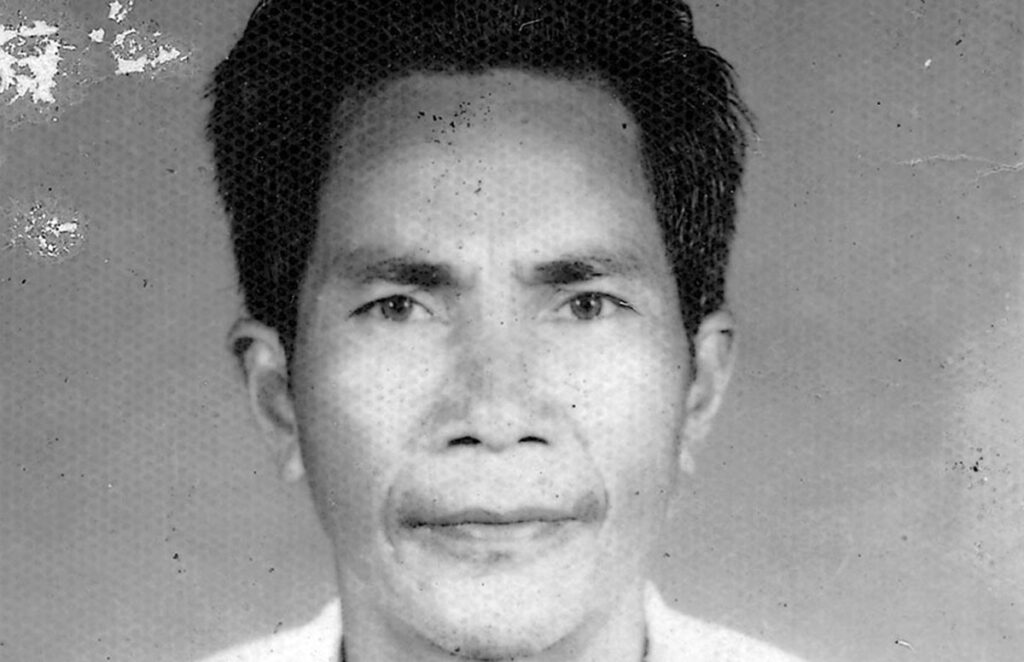My father was ordained a monk when he was young and taught in the monastery. Sending a son to the monastery was customary among older people. They felt that becoming a monk was a way to get an education, and that women would easily agree to marry someone who was educated enough to teach at the pagoda. So, my father resigned when his parents began looking for a wife for him.
After he was married, my father was a literature teacher in our village in Phnom Penh; my mother also studied literature with him at our home. Later he also became the deputy chief of our village; he supervised 50 houses, while the chief supervised 100. They only had this system during the Lon Nol regime; it was used to gather statistics so they could get funding from the Americans. It also allowed the officials to know the number of people coming in and out of the village.
My brother Sam Aon studied at the same pagoda as my father, and was also ordained there. He stayed on at the monastery until 1975, and then quit to get married. After he had been married for three or four months, the Khmer Rouge took control of Cambodia.
All of my family members were evacuated at the same time, however; the Khmer Rouge soldiers separated us. At first I went to Koh Kong Province, but then I moved to Sre Prey near Phnom Penh to live with my father and siblings until I got married.
But we didn’t really live together. We were only allowed to meet our parents for an hour after we finished work, and then returned to our units. If we did not go back on time, we would be tortured.
The Angkar arranged my marriage to a man called Chann Sokh Keng. On the wedding day, 5 couples who were base people decided to stand up and represent all 90 of the couples who were getting married. They made us vow that we would live together forever. In fact, no one wanted to get married. We only thought of how we could escape being killed from day to day. The Angkar ordered my husband to live in a cooperative in another district after we got married.
One day when I was digging dams, some elderly people in the village told me that my father had died. I don’t know the cause of his death. Some people said my father died from an illness, while others said that the Angker had sent him away to be killed.
Not too long after that, I saw my brother Sam Aon riding on an ox-cart. He had many cucumbers on the cart and called me to take some to eat. I was afraid that the Angkar would kill me if they learned about it, so I declined. Several days later, my aunt told me that Sam Aon was being sent to Sa-ang Prison and fought with the cadres along the road. So, the cadres killed him before he ever reached the prison.
When I heard about my father and brother’s deaths, I cried in secret and decided not to go to work for several days. I regret that the Angkar only gave me permission to see my father after he died.
Once the Vietnamese soldiers liberated Cambodia in 1979, the Khmer Rouge soldiers ran out of our village to live in jungle. I returned to my home village with my husband.

